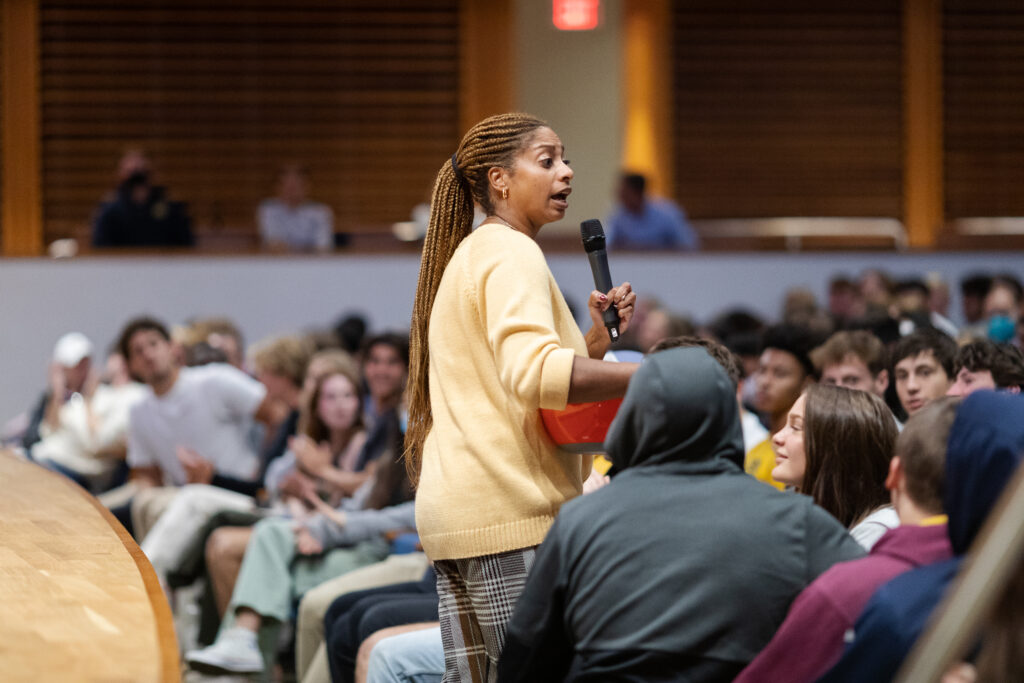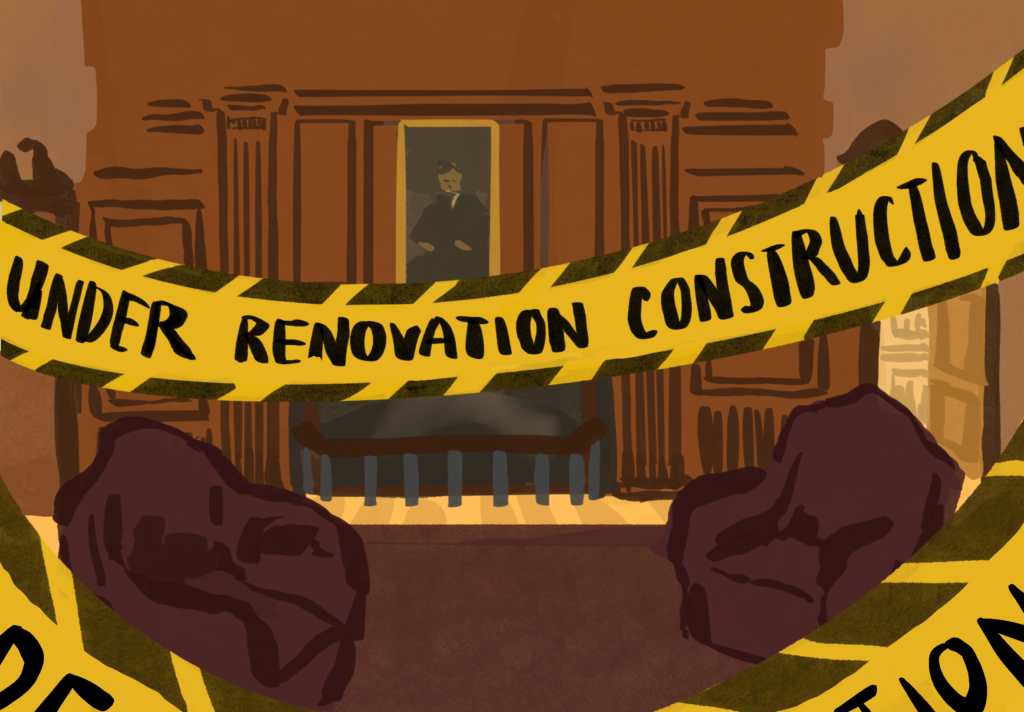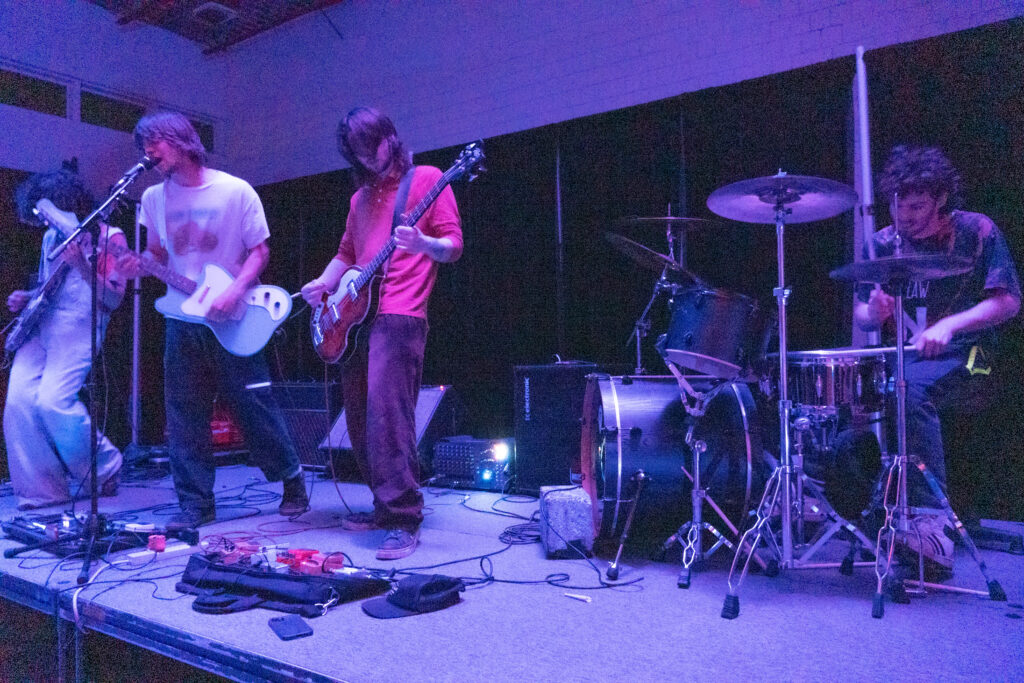On Monday, October 10, students and faculty came together to discuss topics regarding gender non-conforming identity: gender expression, religion, intersectionality, and ways in which the School can better support its gender non-conforming students.
Since gender norms are a socio-culturally constructed concept, the exact definition of gender non-conforming differs geographically and culturally. Overall, gender non-conforming is a label that applies to those that present or percieve themselves in a way that is not aligned with the cultural norms assumed for someone of their assigned gender or sex at birth. That means that one does not have to be non-binary or transgender to identify as gender non-conforming. This is the definition of gender identity that was kept in mind during the conversation.
At the beginning of the conversation, Dr. Myers, Dean of Equity and Inclusion, educated the community on Two-Spirit identities in recognition of Indigenous Peoples’s Day. “Two-Spirit identity within Indigenous communities relates well to our Community Conversation topic of gender non-conforming identity, as Two-Spirit is an umbrella term in the Indigenous community for a vast array of gender identities within Native American nations,” she explained. Dr. Rachel Myers hopes that, as with every conversation, students and faculty alike become “less ignorant about a facet of identity present in our community than they did upon arriving.” Dr. Myers added that even those who consider themselves “experts” in this area or identify as gender non-conforming cannot possibly know how everyone under that identifier will respond to the questions posed. “Everyone deserves an opportunity to share if they feel comfortable and desire to do so,” she added.
Jada Dixon ’24, a student who spoke during the conversation, shared that “gender non-conforming people have different experiences. They come from different backgrounds, and they look different. I think a common misconception is that you can tell who’s nonbinary by the way they look.” This misconception of androgyny was noted by several other community members at the conversation, who also described the struggles of being perceived as a gender that may not match the one they identify with.
Dixon noticed that “there’s not very many ‘out’ non-conforming individuals who spoke at the Community Conversation. [It] just speaks to [the fact that] we don’t have that many students or faculty that identify that way at Choate,” they said. “It isn’t really a good or bad thing, but I think it’s important to notice there aren’t a lot of us.”
When speaking to improvements the School could make for its gender-non conforming community members, Dixon noted that “Choate can do better at using pronouns properly for all students,” particularly faculty who have been part of the School for an extended period of time. They would also hope to see more conversations about gender and gender identity on campus, and more education in general. “People are often afraid or unsure about things they don’t really know. I’ve heard comments about gender identities that aren’t true, but it’s because someone’s just unaware of the fact so they made assumptions. Having conversations like this one will help, overall, people learn.”
Ms. Jillian K. Forgue, Associate Dean of Equity and Inclusion, wants the Choate community to learn the basic terminology surrounding gender non-conforming identity along with how to support the community who identifies with it. She echoed Dixon, hoping that the School becomes more cognizant of everyday topics such as pronouns and was able to put on “that lens of being inclusive to all genders and knowing a bit more about what gender non-conforming identity looks like.”
While she has not been at the School for long, Ms. Forgue reported that “after hearing [the Community] Conversation, it sounds like there’s more work we can do to make it easier for teachers to see names and pronouns”. She added, “This Community Conversation should not be the only time that we talk about these things.” She suggested finding more formal opportunities for debrief that include the whole school community.
Ms. Forgue applauded those who shared their voices and experiences in the Community Conversation. She said, “They made their whole community better by their bravery and their willingness to share… The more that people are willing to put themselves out there, the more generative conversation and the more everyone’s benefiting. [I am] so delighted and proud … I hope they feel affirmed and know how immensely grateful we all are for their contributions.”
The next Community Conversation on the topic of Male Identity at Choate will take place on December 13.

Dr. Rachel Myers facilitates the Community Conversation in Colony Hall.



